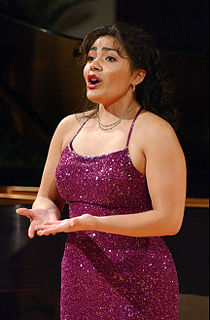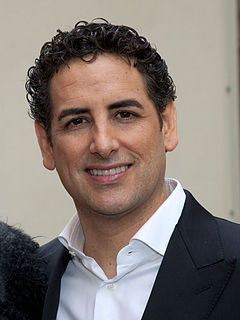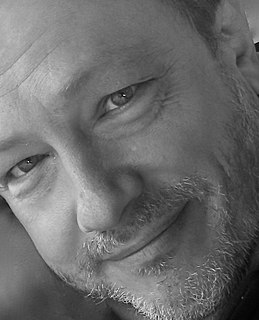A Quote by Ailyn Perez
The more you're out there singing, learning, and adding roles to your repertoire, it reforms the next piece.
Related Quotes
The doctrine of evolution implies the passage from the most organised to the least organised, or, in other terms, from the most general to the most special. Roughly, we say that there is a gradual 'adding on' of the more and more special, a continual adding on of new organisations. But this 'adding on' is at the same time a 'keeping down'. The higher nervous arrangements evolved out of the lower keep down those lower, just as a government evolved out of a nation controls as well as directs that nation.
I've had my ups and downs, and I definitely have a sense - in America, especially - that once you've made your mark and gotten your Rolling Stone piece and your Grammy nomination, that they're on to the next piece of meat, and they don't necessarily like to follow the twists and turns of an artistic career.
Roles that involved, whether it be training, whether it be physicality, getting skinny, there's some investment. There are roles that you do like that and sometimes there are roles that you do to make sure your family doesn't starve, but then you have to still say, "Is there something I can do with this? Can I do something with this that will be fair to the people watching it and fair to my time as well?" I'm at the point where that luxury of choice is getting more and more for me, absolutely, but it's more primarily roles that are more demanding of me in every way.
I consider the first 20 performances just learning the piece. Think about it this way: If you think about a pianist who plays a Schubert sonata through his whole lifetime - if you listen to Rubenstein or Horowitz playing their repertoire later in their life, you understand the richness with which they play that music, and how differently they must have played it when they were younger.
Future arises out of your misery, not out of your celebration. A really celebrating person has no future; he lives this moment, he lives it totally. Out of that total living arises the next moment, but it is not out of any lust. Of course, when out of celebration the next moment arises, it has more capacity to bless you. When out of celebration the future arises, it goes on becoming more and more rich. And a moment comes when the moment is so total, so whole, that time completely disappears.



































